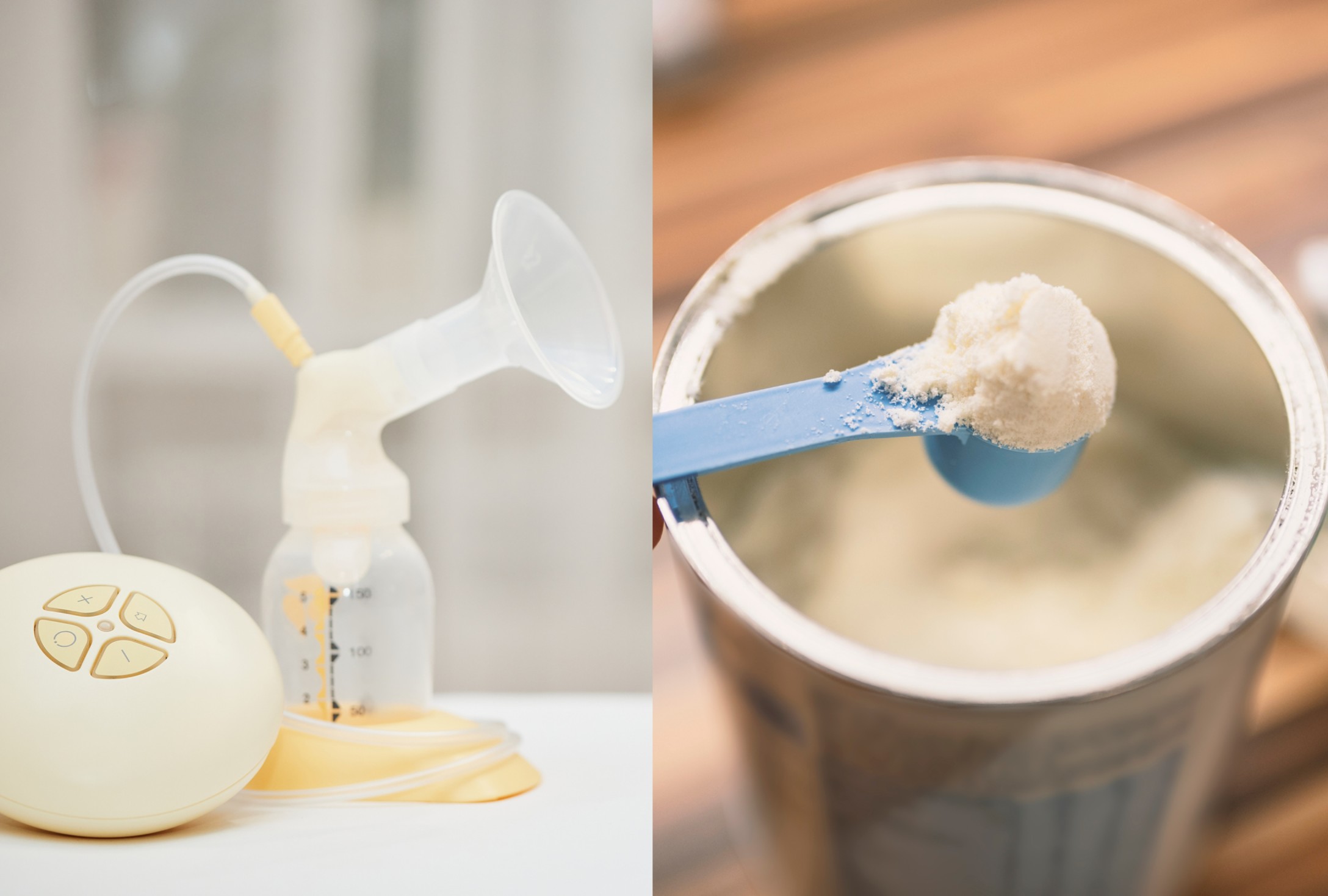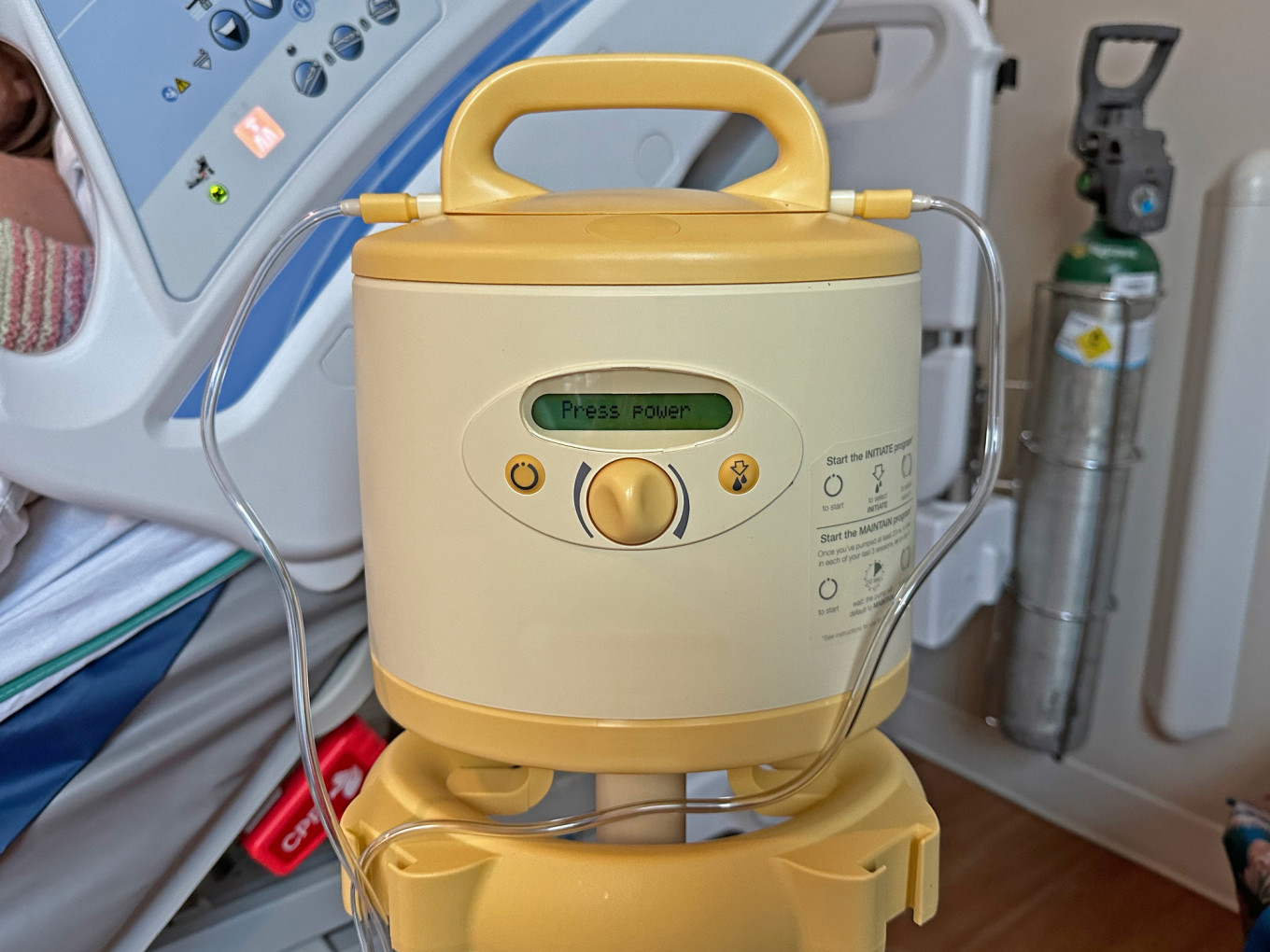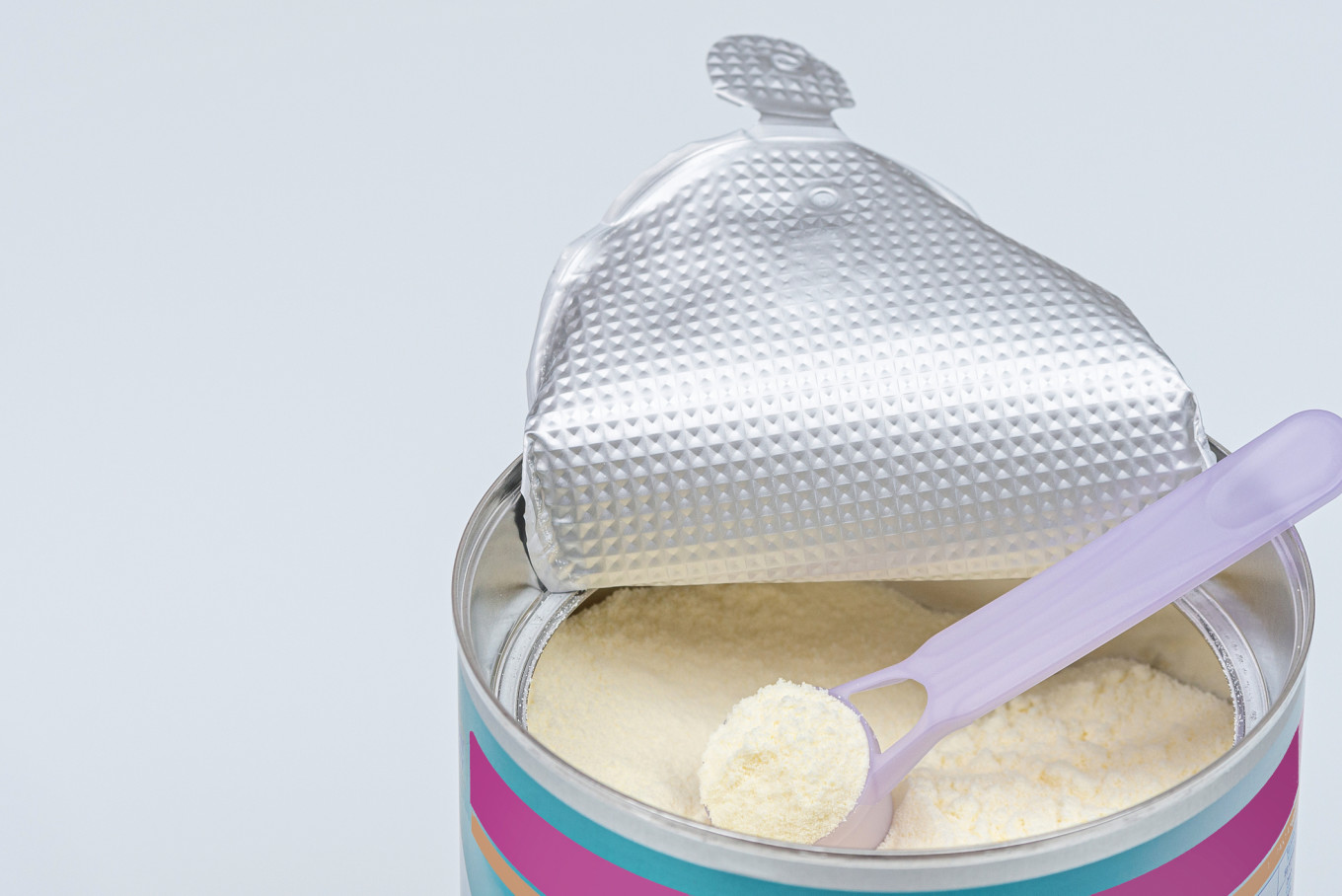
Before becoming a mom, I always just assumed I would breastfeed. After all, everything I’d read while pregnant said it was the best way to feed your baby, with so many benefits — such as the way that breast milk could help protect my baby against illnesses and that nursing could help build a strong bond. In my mind, breastfeeding was the default, and although I didn’t have anything against formula, I knew it wasn’t a route I wanted to take unless I absolutely had to.
But then, like many moms, I actually gave birth, and I quickly learned that it was nothing like I thought it would be.
More from CafeMom: A CEO Mom Posted a Breastfeeding Pic on LinkedIn & the Comments Were Full of Red Flags
Nothing happened the way I thought it would, starting at birth.
After more than 24 hours of labor, it was determined that my daughter was not coming out the traditional way. My body wasn’t able to dilate more than 6 inches, and my labor was stalled for hours. By the next morning, my doctor determined that I had something called an "incompetent pelvis" (such a compliment, right?) and I’d need to have a C-section to get my baby out.
Things happened very quickly from that point, and before I knew it, I was lying on an operating table, waiting to hear my daughter’s first cries. This was the first surgery I’d ever had and my first baby, and so much was happening at once.
Breastfeeding just didn’t work out in the hospital.

A C-section is a major surgery that follows more than nine months of changes to your body, and by the time I was being wheeled into the recovery room, I was more than overwhelmed. Immediately, the nurses around me encouraged me to breastfeed, and I gave it a shot, but my daughter just wasn’t latching.
The next two days would be a whirlwind of trying to get this kid to nurse, and neither of us was getting much rest with the constant flurry of nurses coming in and out of the room at all hours of the day and night, checking on both me and her. The lactation consultant on staff was sure my baby had a tongue tie and set me up with a hospital-grade pump — not exactly the most fun thing in the world after you just had a human being surgically removed from your body.
At that point, I really just wanted to be left alone to process everything that was happening.
Luckily, my husband was willing to speak up for me and ask for formula so I would be able to rest without stress. I was sure that I could get more comfortable with pumping once we made it home and I was in my own comfy environment.
Pumping at home was no easy task.
My daughter still showed no interest in latching, so I dutifully pumped every two or three hours, trying to build up my supply. Still, in a 24-hour period, I was only able to pump enough milk for just one of her feedings, so she was consuming mostly formula anyway.
I had to go back to work at four weeks postpartum, and at that point, it was impossible to juggle work, newborn care, and pumping all at once. As soon as I’d hook up those flanges, I’d automatically start crying. I hated pumping when there were a million other things I needed to be doing, and I hated trying to make myself do something I didn’t want to do. But I’d always been told that this was what motherhood was about: sacrifice. If I couldn’t do this for my baby, was I a bad mother?
More from CafeMom: How To Supplement With Formula for Infants
Finally, I realized this was not something I had to force myself to do.

Ultimately, I realized that it was worse for my daughter to drink a single bottle of breast milk per day and have an exhausted, unhappy mother than it would be for her to be fully formula fed by a happy, rested (OK, kind of rested) mom.
Instead of dreading pumping, feeding my daughter her bottles quickly became one of my favorite parts of the day. As she got older, it was one of the only times she’d sit still long enough to cuddle me, and I will never forget the time I spent in the rocking chair next to her crib, right before bed, singing her my favorite songs while she drank a bottle.
I probably could have tried harder to make it work. Plenty of babies have their tongue ties corrected. I could have asked for help from another lactation consultant. But I was already so unhappy, and I simply didn’t want to force it. It wasn’t working, and formula exists for a reason, after all.
'I don’t want to' is a good enough reason not to breastfeed.
Breastfeeding is one way to feed your child. Formula is another. One is not inherently better than the other, and choosing one option over the other does not make you a worse or a better mom.
And for the record, my fully formula-fed daughter grew up to be a strong, happy, healthy (and sassy) toddler, and I can’t imagine possibly having a closer relationship with her. In the end, it’s not breastfeeding that creates the bond — it’s you, being present as your child’s mom, loving your little one unconditionally and being there to celebrate the highs and comfort your child through the lows.
If you’re waiting for someone to give you permission to stop breastfeeding, here it is: You don’t have to breastfeed if you don’t want to. It’s OK to stop — your feelings in all of this matter, too.




